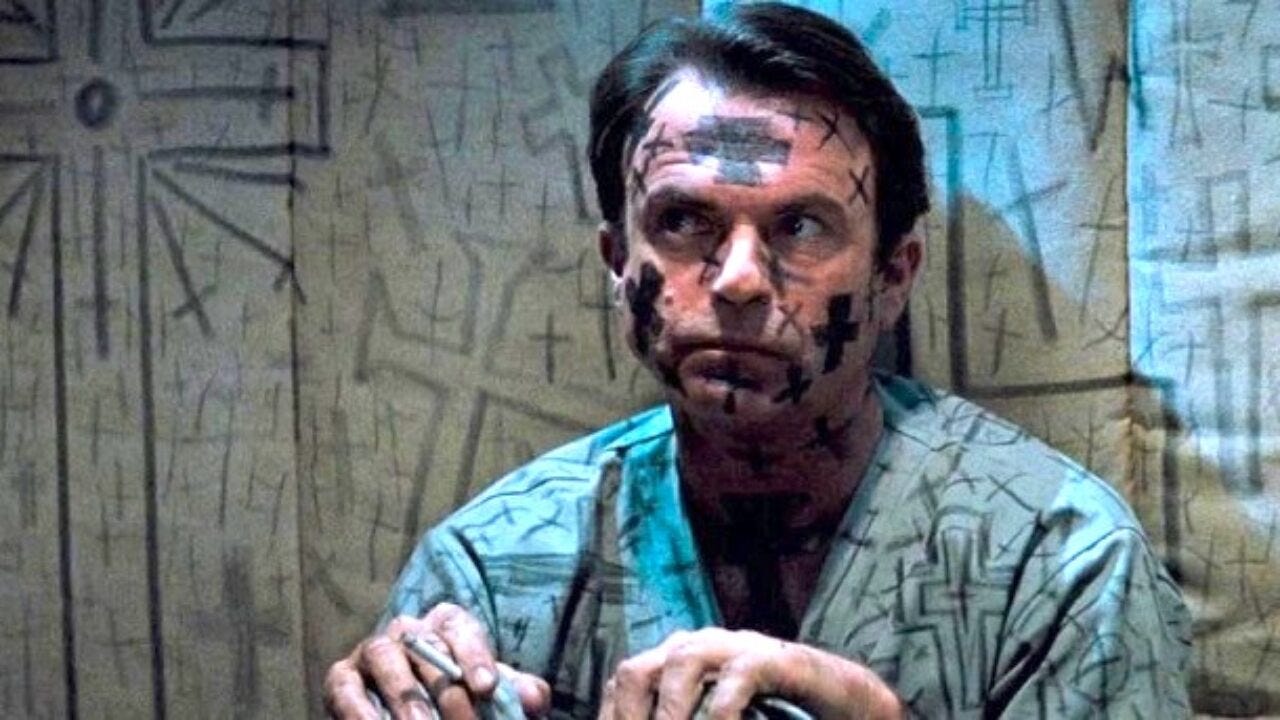the thing I can't remember is what came first
in the mouth of madness (john carpenter, 1994)
I like movies where Sam Neill plays somebody crazy (Event Horizon, Possession).1 To me, Neill has a kind of handsomeness that is only really brought to its full potential when he’s grinning really wide. When you do you grin really wide? When you’re crazy.2 Thus Sam Neill in a movie titled In the Mouth of Madness represents a promise of endless delights. Mouth and madness… both right there in the title.
Still, in this case, Neill’s character, the blandly named “John Trent,” is crazy because he’s sane. Even when he’s faced with insane but undeniably real circumstances, Trent often does exactly what you’re yelling at him to do. A hot new manuscript makes people who read it crazy, so you yell don’t read it. He doesn’t! Then he’s lugging this evil manuscript around so you’re thinking destroy it, idiot. He does! It doesn’t matter, because he’s in an insane world. His very sanity and skepticism is why he can be the portal between the insane reality that takes over and the sane reali…


